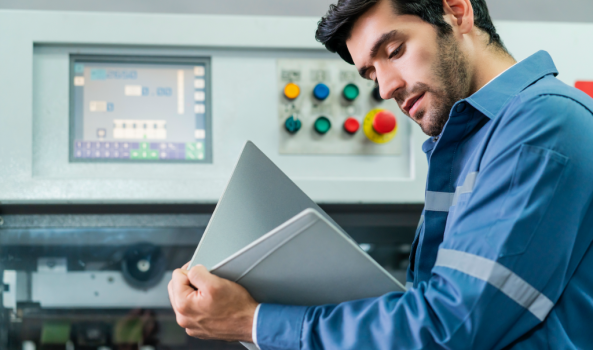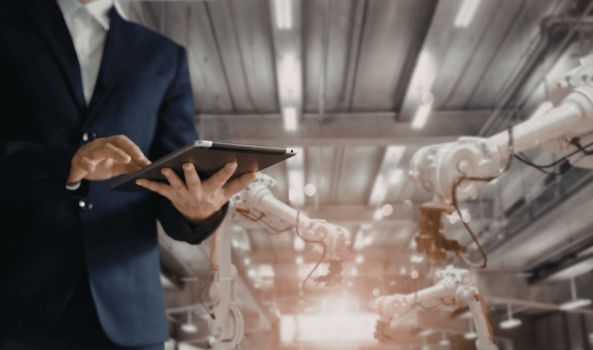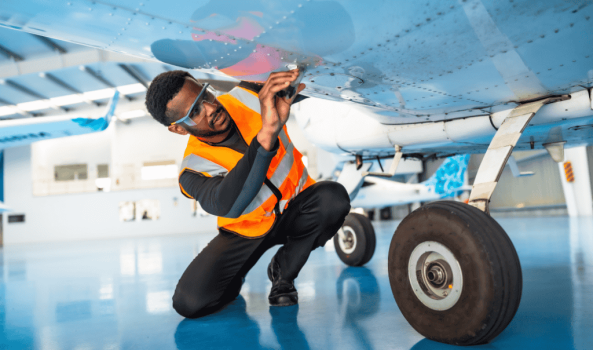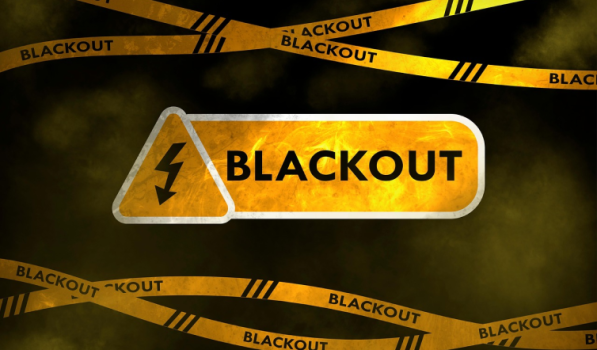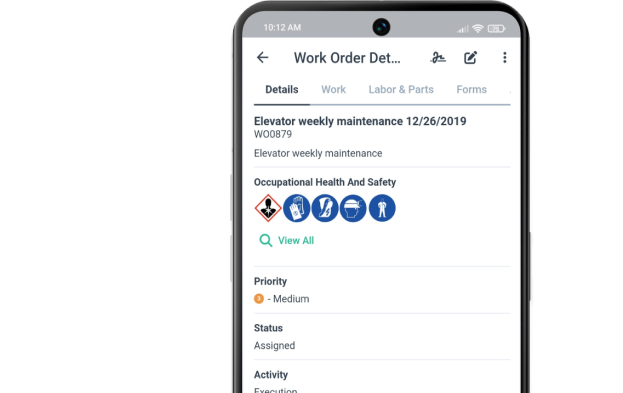Get a Free WorkTrek Demo
Let's show you how WorkTrek can help you optimize your maintenance operation.
Try for freeThe job of the hotel maintenance department is to ensure that all facilities and equipment are in good condition and running smoothly to reduce the risk of disruption to hotel operations. Access to high-quality information gives every company a competitive advantage, as it is the key to all decision-making, the basis for a company’s knowledge acquisition, and the driving force behind new business ideas. Likewise, well-organized data is critical to good hotel maintenance.
What Is Hotel Maintenance?
There are various hotel maintenance duties. Maintenance includes maintenance of the hotel, its premises, operational functions, facilities, etc.
Therefore, we can define hotel maintenance as the various operations and processes that optimize hotel operations. This also includes providing your guests with good facilities and good hotel services. If you have heard of building maintenance, you can easily understand the duties and responsibilities of hotel maintenance. Various functions such as plumbing and power management fall under the umbrella of hotel maintenance.
There is a saying that happy customers mean happy business. We cannot deny that this is true. A streamlined hotel building with impeccable functionality is sure to delight your clients. This can be achieved with proper hotel room maintenance. Other aspects also belong to hotel maintenance, such as management excellence of food quality, standard mattresses, hygienic spaces, etc.
However, figuring out the exact maintenance responsibilities of a hotel is certainly a challenge. Since each hotel has a different working structure, its maintenance functions are also different. A luxury Miami hotel will have top-notch maintenance duties and responsibilities, although hotels near you will have different hotel maintenance practices. For both companies, however, the approach plays a crucial role.
Due to the increasing demand in the hospitality industry, various hotel companies hire hotel room maintenance companies. The practice of setting up separate hotel maintenance departments is also common. A variety of hotel maintenance software helps these departments work efficiently. See how to develop a facility maintenance plan.
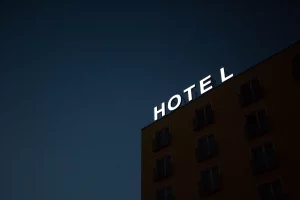
What Are The Types Of Hotel Maintenance?
Hotel maintenance can be done in several ways. Most hotel maintenance departments include preventive hotel maintenance and reactive hotel maintenance.
Hotel Preventive Maintenance
Such maintenance in hotel operations includes managing hotel assets in accordance with its policies. This measure is applied if the device type is still in working condition. While tools and equipment are in use, they are maintained to check for damage. The main reason for this type of maintenance is to improve equipment types and related processes. Fundamental insights and fundamental observations are used in this hotel maintenance practice.
Hotel preventive maintenance can be divided into three categories. These are as follows:
According to the Time – This precaution includes performing maintenance operations based on time. Choose a different time interval to perform maintenance tasks. Pipeline installations are performed every six months and set at different intervals such as quarterly, monthly, yearly, etc.
According to the Usage – The next category depends on the use case. When equipment is used frequently, the probability of failure increases, so the frequency of use also affects preventive maintenance measures. There is a fixed usage level that determines performance for maintenance operations.
According to the Condition – This is a proactive form of maintenance. If equipment appears to be in poor condition, maintenance actions will be taken as needed. With this care, various indicators indicate the need for maintenance. Health indicators can show performance degradation.
Hotel Reactive Maintenance
This type of maintenance is performed in the final stages of equipment use. The word “reactive” means taking action every time an obstacle is encountered. This means that a device or type of device fails, followed by repair measures.
Reactive maintenance is cheaper and has low resource consumption. But not suitable for a longer breastfeeding period. Read our blog post where we compared reactive vs. preventive maintenance.
Why Is Hotel Maintenance Essential?
Now that you are familiar with hotel maintenance and its types, let us try to understand the importance of maintenance in the hotel industry. Hotel maintenance is all about making sure all the behind-the-scenes activities are in order and running smoothly.
Sometimes hotels have all the necessary resources and manpower to carry out various maintenance jobs. However, the interruption still occurs. Sometimes even tasks are wired and cannot be completed on time. The reason for this is the lack of proper management. Hotel maintenance management ensures the implementation and execution of all hotel maintenance tasks without restriction. Not to mention it also leads to reduced hotel revenue.
Proper maintenance management ensures that such situations never occur and there are no obstacles to maximizing revenue.
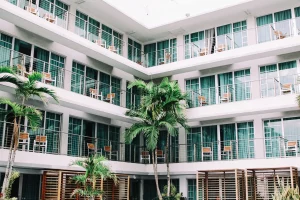
4 Benefits of Hotel Preventive Maintenance Management
While most of the essential management procedures that keep a hotel running smoothly are hidden from guests’ sight, few of them are as important as preventive maintenance.
When guests go home satisfied and realize that “nothing went wrong” during their stay, in most cases, effective preventive maintenance management is responsible for that impression.
The concept of preventive management (PM) is very simple. It involves the routine and periodic management of hotel maintenance. This means your maintenance staff can effectively keep an eye on all of your hotel’s vital equipment and assets to keep everything running as it should.
Let’s take a look at some of the key benefits your property can enjoy when you have an excellent preventative maintenance system. See preventive maintenance services and repair program.
1. Budget better and reduce costs dramatically
If your team has installed and uses some type of hotel maintenance software or platform, hotel managers and authorized maintenance personnel can maintain much-needed visibility into the status of all maintenance programs and procedures. This includes the status of your equipment and how it works, associated work orders, and important notes and data left by maintenance personnel on all of your property’s critical assets that require regular maintenance.
This allows your hotel to maximize its budget and reduce unexpected and often very expensive expenses. When regular maintenance is scheduled, your engineers and other maintenance personnel will have a better understanding of how your equipment is functioning. This allows them to more accurately estimate each piece of equipment and when it is expected to require repair or eventual replacement.
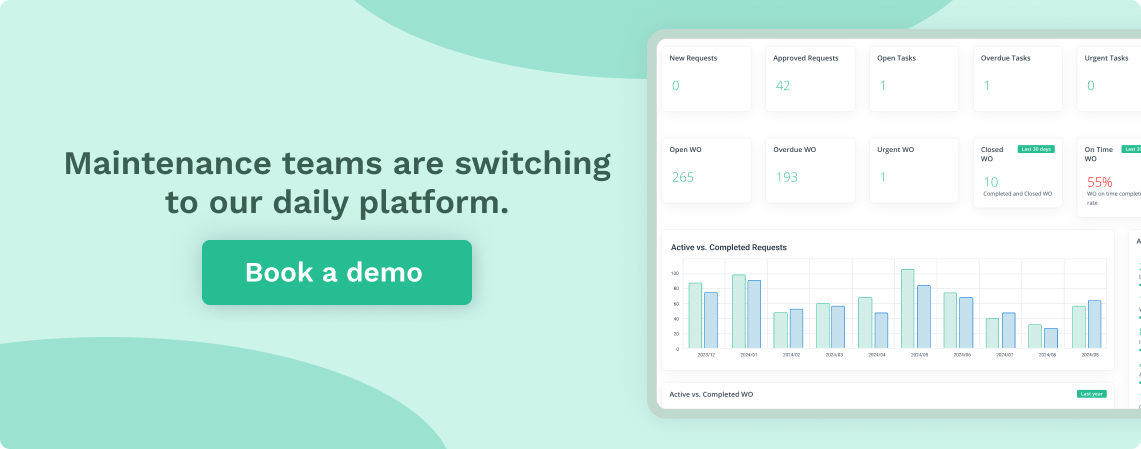
This foresight enables hoteliers to properly and accurately plan their future spending. The better you budget throughout the year, the better equipped you are to deal with the inevitable unplanned outages that require immediate repairs. Proper preventive maintenance will help you reduce the likelihood of such failures and make them easier to deal with when they do occur.
Preventative maintenance management goes beyond looking after your equipment and extends to asset tracking. This enables you to identify what you’re missing and replace anything missing promptly before an inventory shortage ruins your guest experience. This type of inventory management can also have a positive impact on your budget as you can buy what you need on time, in bulk, and at better prices. Read how and why should you track fixed assets.
2. Eliminate maintenance staff idle time
What does “free time” mean when running a hotel? Idle time is the period when a worker (or machine) is unable to perform the tasks it needs to perform or is not doing anything productive at all.
For example, a maintenance worker’s free time might be waiting for parts to be delivered or tools to be available before they can perform tasks.
Every minute of free time costs your hotel money. While brief periods of idle time are unavoidable in any work area, the goal is always to minimize idle time and increase the efficiency of our people and equipment. Maintenance is about streamlining employee workflows, enabling instant employee communication, creating more balanced workloads and schedules, installing clear operating procedures, delegating routine tasks, and providing checklists and auditing tools.
Preventive maintenance management helps you ensure that maintenance personnel always know what they have to do and, most importantly, always have something to do.
Of course, it’s not about making them work for work’s sake. It’s about developing a plan that allows them to regularly and systematically perform all the inspections and maintenance necessary to keep your property running like clockwork. See also a beginner’s guide to plant operations management.
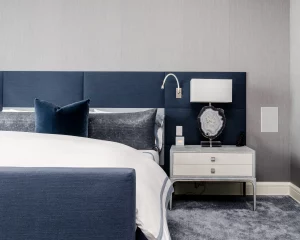
3. Improve maintenance staff efficiency and productivity
One of the many unfortunate circumstances of the ongoing COVID-19 pandemic is that many hotels are currently reducing staff numbers. One of the best ways to address staffing shortages is to install a preventative maintenance management program. This can automate many of your maintenance processes and help you get more work done with fewer people.
Today’s modern hotel management solutions allow maintenance staff to receive their tasks via mobile phones and keep checklists and preventive maintenance procedures at hand. This enables them to work on the go, check off completed tasks, and even take notes, equipment measurements, and analytics on their phones, increasing efficiency and team-wide visibility.
Employers are often afraid of introducing new technology and automation to their employees, thinking it might confuse their workers. However, the reality is that most workers prefer automation and software as job aids. According to a recent Zapier survey, nearly 40% of employees surveyed said that automation software helps them get their jobs done faster. They also claim that automation can help them be more organized, improve their overall work, and help them focus on the most important tasks.
Preventive maintenance is about working smarter, not harder. Having a system that provides checklists and reporting capabilities to your maintenance team will help them become more organized. Not only does this make it easier and more efficient for them to complete their scheduled tasks, but it also makes them better able to resolve urgent issues when needed.
Your PM staff may need to check many things throughout the day. No matter how long they’ve been at the job, some are easy to forget or accidentally skip.
Hotel management can be confident that all routine tasks are completed, and the preventive maintenance checklist prompts your staff to sign off on each completed task. You can even see when they were completed and if employees left notes about the status of hotel amenities and assets. Check out also most important maintenance metrics you should have in mind.
4. Higher guest satisfaction
At the end of the day, nothing is more important to owners and managers than happy guests. By increasing transparency and ensuring greater employee productivity and efficiency, your preventive maintenance system can significantly reduce guest complaints.
An automated PM program can help your staff spot small problems before they become big problems and pinpoint problems before they spread. Just as preventive maintenance reduces the chance of accidentally affecting employees, it can do the same for guests. This results in a peaceful and enjoyable experience, which increases customer satisfaction, positive reviews, and the likelihood of future bookings.
Routine maintenance of a hotel’s air conditioning, plumbing, ventilation, electrical, and all other customer-facing systems can greatly reduce the likelihood of problems requiring costly and immediate fixes. Consider reading 5 ways CMMS will save you money.
CMMS In Hotel Maintenance
Managing the maintenance of hotels and resorts with hundreds of rooms, multiple floors and numerous facilities is no easy task. Facility managers need to be organized and efficient in providing their guests with a comfortable stay to do business with them in the future.
But it doesn’t stop there. Research shows that 72% of guests share their positive experiences with six or more people, which increases credibility and positively enhances the resort’s reputation when guests have a good time. Good maintenance is key to making this happen.
When assets are properly maintained, guests experience fewer problems and enjoy their stay more. The last thing anyone wants to worry about while traveling is sub-standard equipment or amenities.
To improve employee productivity and better focus on maintenance needs in all areas of a hotel or resort, maintenance managers should use a CMMS to perform preventive maintenance (PM). A CMMS is maintenance management software that provides real-time updates of facility equipment for greater accuracy and organization. When hotels and resorts implement a CMMS, they improve the quality of service they provide to their guests and visitors.
Read on to learn three ways hotel and resort managers can improve maintenance management by using a CMMS.
-
Reduced maintenance costs and requirements
When it comes to hotels and resorts, there are few success factors higher than customer satisfaction. However, when there is equipment downtime in rooms, hallways, or common areas, expect customer satisfaction to drop.
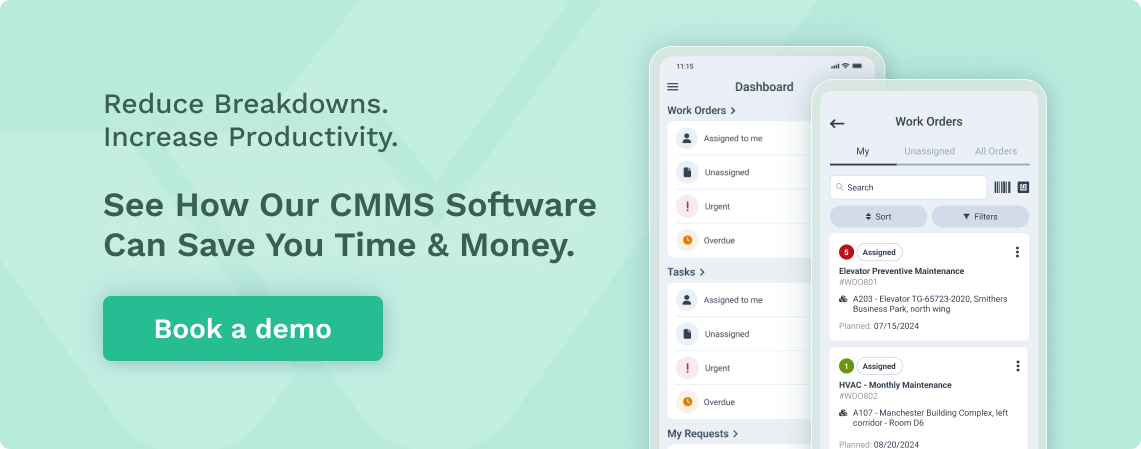
To reduce the risk of asset downtime, maintenance managers can use the CMMS to prepare for replacement or upgrades. The organization should track the current condition of parts when it was last repaired or replaced, and whether replacement parts are available. Not only does this keep the facility organized, but it also helps track their budget and avoid inventory later on.
Hotels must consider the number of areas on their property where downtime is likely, including:
- Hotel rooms may include kitchenettes, bathrooms, and laundry facilities.
- Common recreational areas include a swimming pool, changing rooms, gym, and restaurant.
- All behind-the-scenes equipment, including mechanical and electrical equipment throughout the property.
Implementing a CMMS system can save the hotel and guests money in the long run. By tracking equipment maintenance needs and repairs, hotels can better assess which purchases they need to make. In addition, having a CMMS extends the useful life of assets, enabling hotels and resorts to offer more competitive rates and save money for guests. See also a step-by-step guide to choosing and using the right CMMS.
-
Keep all your data in one place
On average, each hotel has nearly 300 rooms. Additionally, there are multiple floors or wings, and various technicians throughout the facility. When you add up the number of rooms, floors, wings, facilities, and technicians, you’re left with a disjointed mess of data about maintenance operations and the health of the facility.
With a CMMS, maintenance, and facilities managers can quickly and easily update the current status of equipment or an entire property. A CMMS provides a snapshot of the entire facility with layer-by-layer data on replacements, repairs, equipment needs and orders, and more.
Ultimately, with everything in one place, maintenance teams can increase their productivity by minimizing reporting back and forth, as the CMMS allows managers to see the status of all projects in real-time.
-
Provide a higher level of service to guests
Due to the number of assets in a hotel or resort (think HVAC equipment, elevators, fitness equipment, etc.), power outages are bound to happen from time to time. But the job of the maintenance team is to respond to ticket requests quickly and efficiently to keep guest morale up.
More powerful equipment and quick responses to work order requests leave a positive, lasting impression on guests, encouraging them to stay again.
And what’s better than responding quickly to requests? How about repairing machines before your preventive maintenance (PM) program breaks down?
PM planning helps predict asset failures before they occur. This means welcoming guests into their rooms with all their assets in working order, rather than calling the front desk for a work order. For more, read what is the work order.
Since a PM program that supports a CMMS can help save money, resorts, and hotels should consider investing in higher-quality materials in their guest rooms and common areas, which are often more expensive to repair or replace. This helps resorts save on maintenance costs and provide higher-quality accommodations to their guests.
A CMMS can also help your resort or hotel better track which rooms require maintenance and can respond to maintenance requests more quickly. All of these contribute to a higher quality experience in your stay.
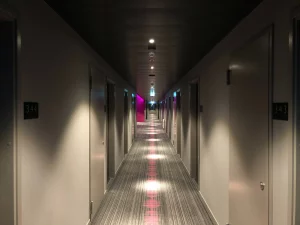
Conclusion
The hospitality industry is in uncharted territory right now, but one thing remains constant: guests want a safe, predictable, and comfortable travel experience. Hospitality facilities can take advantage of this post-Covid period to modify existing maintenance strategies, safety procedures, and standard operating procedures.
The easiest way to organize maintenance work is to use CMMS software. Hotel maintenance software is critical to the success of any resort or hotel. As a member of the hospitality industry, you know the importance of keeping your rooms and facilities clean and free of damaged or broken equipment. A string of bad reviews due to these issues can cause lasting damage to your booking. Using a CMMS as your hotel management software, you can streamline all projects, stay abreast of compliance issues, and save time and money with inventory tracking. In the end, your guests will be happier and ready to come back and tell all their friends about the great experience they had at your resort or hotel.






